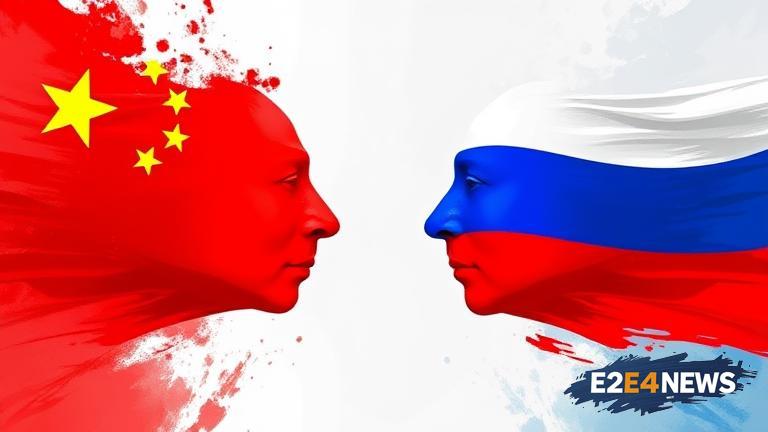In a significant development, Russia and China have reaffirmed their commitment to strengthening their bilateral ties, amidst a backdrop of global uncertainty. The two nations have been engaged in a series of high-level diplomatic meetings, aimed at deepening their economic, military, and strategic cooperation. Russian President Vladimir Putin and Chinese President Xi Jinping have been at the forefront of these efforts, with both leaders emphasizing the importance of their partnership in promoting regional and global stability. The Russia-China relationship has been gaining momentum in recent years, driven by a shared desire to counterbalance the influence of the United States and other Western powers. One of the key areas of focus has been economic cooperation, with Russia and China seeking to increase trade and investment flows between their countries. The two nations have also been exploring opportunities for collaboration in the energy sector, including the development of oil and gas fields in Russia’s Arctic region. In addition to economic cooperation, Russia and China have been strengthening their military ties, with a focus on joint exercises, training programs, and defense technology transfers. The two countries have also been working closely on diplomatic issues, including their shared opposition to the US missile defense system in Eastern Europe. Furthermore, Russia and China have been coordinating their positions on key global issues, such as the crisis in Ukraine, the conflict in Syria, and the nuclear program in North Korea. The strengthening of Russia-China ties has significant implications for the global balance of power, as it creates a powerful counterweight to the influence of the United States and its allies. The partnership also has the potential to drive economic growth and development in both countries, particularly in the areas of energy, technology, and infrastructure. However, the relationship is not without its challenges, including concerns over trade imbalances, security risks, and human rights issues. Despite these challenges, the Russia-China partnership is likely to continue to deepen in the coming years, driven by a shared commitment to promoting their national interests and advancing their global influence. The partnership is also expected to have a significant impact on the regional security landscape, particularly in Asia and Eastern Europe. As the relationship continues to evolve, it will be important to monitor its implications for global stability, economic development, and the balance of power. In conclusion, the strengthening of Russia-China ties is a significant development with far-reaching implications for the global community. The partnership has the potential to drive economic growth, promote regional stability, and advance the national interests of both countries. However, it also poses challenges and risks, including concerns over trade imbalances, security risks, and human rights issues. As the world watches the evolution of this strategic partnership, it is clear that the Russia-China relationship will play a critical role in shaping the global landscape in the years to come. The partnership is a testament to the growing influence of emerging powers and the shifting balance of power in the global arena. It also highlights the importance of diplomacy, cooperation, and strategic engagement in promoting national interests and advancing global stability. In the context of the current global uncertainty, the Russia-China partnership is a significant development that warrants close attention and analysis. The partnership has the potential to drive positive change and promote cooperation, but it also poses risks and challenges that must be carefully managed. As the world navigates the complexities of the 21st century, the Russia-China relationship will be an important factor in shaping the global landscape and promoting stability and prosperity.
